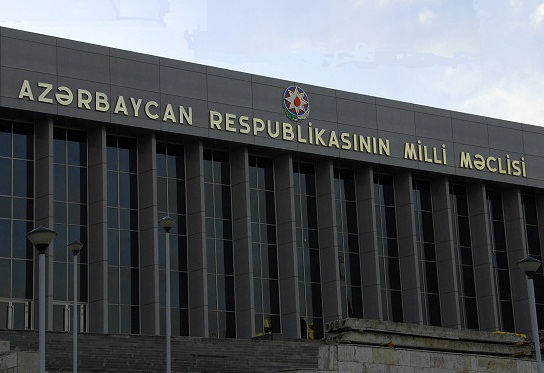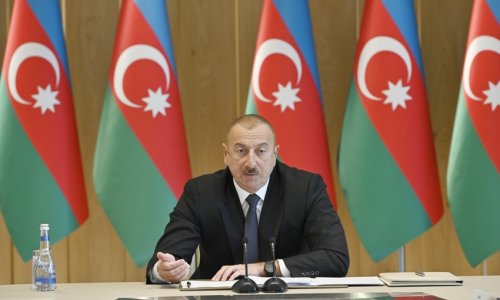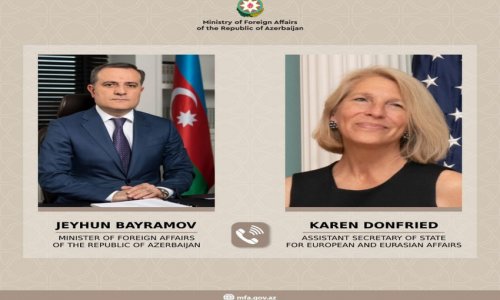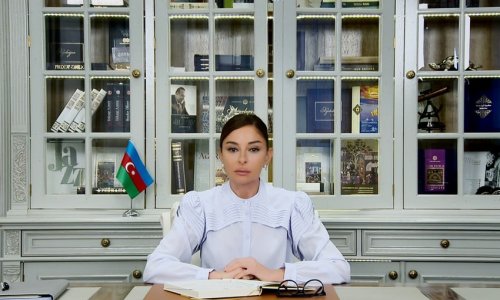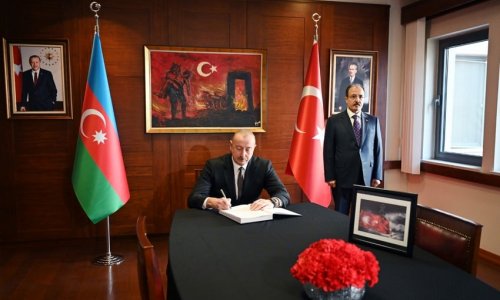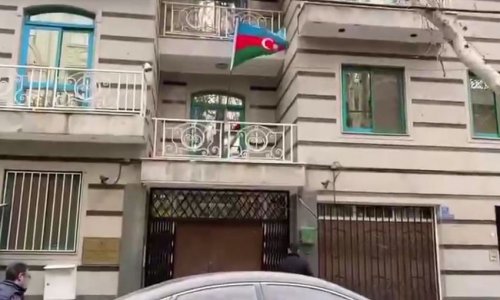Azerbaijan will hold parliamentary elections on Sunday, November 1. On that note, a five-member delegation of the Parliamentary Assembly of the Council of Europe (PACE), led by Jordi Xuclà (Spain, ALDE), carried out a pre-electoral visit to Baku on September 21-22 to assess the electoral framework and campaign prior to the elections in Azerbaijan.
The delegation held meetings with the Speaker of the Parliament of Azerbaijan, the Minister for Foreign Affairs, members of Azerbaijan’s delegation to PACE, the leaders and representatives of parliamentary groups and parties represented in the Parliament, the leaders and representatives of opposition parties not represented in the Parliament, the Chairman of the Central Election Commission, representatives of the diplomatic corps in Baku, and representatives of civil society and the media.
Members of the delegation also included Franck Schwabe (Germany, SOC), Aleksandar Nikoloski (FYROM, EPP/CD), Egemen Bagis (Turkey, EC), Agustín Conde (Spain, EPP/CD), and PACE co-rapporteur for the monitoring of Azerbaijan.
The delegation welcomed the openness of the Azerbaijani authorities and the invitation being extended to a large number of international organisations to observe the forthcoming parliamentary elections, including long-term observers from OSCE/ODIHR.
"A large number of independent interlocutors stressed that progress has been made since the last parliamentary election five years ago, and that the country should not be isolated,” PACE said in a press release.
The pre-electoral mission delegation was informed by the Central Electoral Commission (CEC) about the different stages of the preparation of the parliamentary elections. According to the CEC, no complaints have been submitted to it so far.
"To the regret of the pre-electoral PACE mission, no agreement was reached between OSCE/ODIHR and the Azerbaijani authorities on the number of observers to be deployed and the methodology, so eventually this observation mission was cancelled by OSCE/ODIHR,” PACE said in a press release.
"The PACE pre-electoral mission nevertheless insists on fully carrying out – even increasing – the PACE observation mission as scheduled, as observation of elections in a PACE member State under monitoring is an essential, even statutory, part of the PACE monitoring procedure. Moreover, the final report of the PACE electoral mission is a necessary tool for the Assembly, both as a basis for political debate on the conduct of the elections, and for maintaining institutional dialogue with the parliament of this state,” it said.
Representatives from the extra-parliamentary opposition highlighted the importance of equality of opportunity for all candidates, inter alia the collection of signatures in a free manner, and of preventing the misuse of administrative resources in favour of the ruling party.
The PACE pre-electoral mission said that it welcomes in particular the fact that some major opposition parties have decided to co-operate within a political alliance to enhance their chances of being elected.
Also during a round-table meeting with a large number of NGOs, human rights defenders and civil society activists, interlocutors unanimously called for this election observation mission by PACE to go ahead.
The election code envisages free airtime for all political parties on state television and radio, and free space in state-funded print media. In this respect, the PACE delegation underlines the great importance of ensuring freedom of expression and freedom of the media in order to ensure a level playing field for all participants and full transparency of the election process.
The PACE delegation said it was assured by representatives of the Azerbaijani authorities that all necessary measures will be undertaken to guarantee the transparency of the electoral process, including during the voting and counting procedure.
Azerbaijan has welcomed the decision to retain the PACE election observer mission despite moves in Strasbourg for it to be cancelled just one month from polling day. A September 28 bureau meeting ahead of the PACE Autumn session considered calls to cancel the observer mission altogether. The proposal was defeated by 17 votes to 10, an outcome Azerbaijani MP Elkhan Suleymanov said was a "victory for good sense”.
"The PACE election observer mission is important for maintaining institutional dialogue with the parliament of this state,” he said. "If it had been cancelled we would have had a situation in which Belarus – which has been excluded from this institutional dialogue with Europe – receives an election observer delegation while Azerbaijan does not”.
In fact, the preliminary delegation noted in its pre-election statement: "A large number of independent interlocutors (in Azerbaijan) stressed that progress has been made since the last parliamentary election five years ago, and that the country should not be isolated,” it stated.
Suleymanov said that in voting to go ahead with the election observer mission, PACE has "stood strong” and defended its independence in the face of pressure by the Organisation for Security and Cooperation in Europe, whose ODIHR observer mission was cancelled last month because, it said, of Baku’s restrictions on its observer numbers. According to Suleymanov, ODIHR’s requests were "so preposterous, that one can only conclude their proposals were never meant to be accepted.”
After the re-election of Azerbaijan’s President Ilham Aliyev in 2013, the European Parliament and PACE observer delegations released a joint statement that found the election to have been a "free, fair and transparent electoral process”. Suleymanov expressed his confidence the PACE delegation will again find that to be the case at the start of November.
Meanwhile, the head of the Azerbaijan’s Central Election Commission Mazahir Panahov said recently that it is necessary to make every effort so that no one could cast shadow on the upcoming parliamentary election in Azerbaijan.
During the seminar Election to Azerbaijani Republic’s Milli Majlis: The Roles and Duties of Media in Pre-election Process on October 2, Panahov said CEC has always cooperated with media representatives.
"We have always tried to ensure the participation of not only local, but also foreign media in our events,” he said.
Media outlets play an important role in the election process, he said, adding that media representatives don’t need to be accredited for observing elections. "Their certificate allows them to participate in this process from the beginning to the end,” Panahov said.
Furthermore, he pointed out that over 1,700 people have appealed to CEC for nominating their candidacies for participation in the parliamentary election.
(neurope.eu)
www.ann.az
Follow us !

